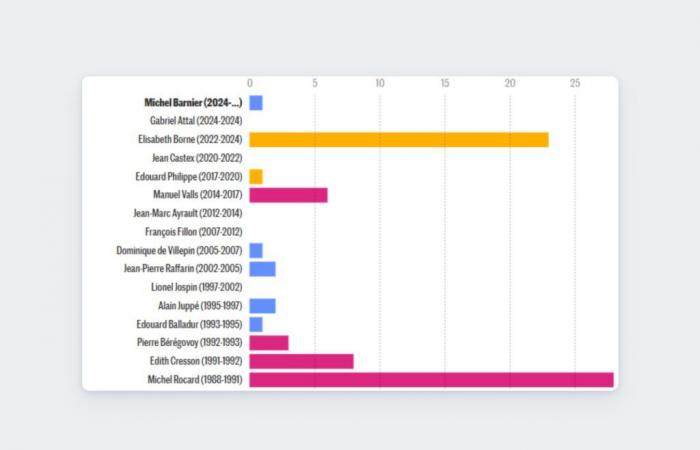On Monday, December 2, Michel Barnier engaged the government's responsibility by triggering article 49.3 of the Constitution, to have the Social Security budget adopted without a vote in the National Assembly. In response, La France insoumise announced its intention to table a motion of censure, which could bring together a majority of deputies and cause the fall of the government.
Read also | Live, 2025 budget: the Barnier government on reprieve after resorting to 49.3, two motions of censure filed by LFI and the RN
Read later
A commitment to responsibility on a text
Not having an absolute majority in the National Assembly, the government has the possibility of “passing through” by having recourse to article 49.3 of the Constitution, which allows the direct adoption of a text of law.
Indeed, paragraph 3 of article 49 allows the Prime Minister, “after deliberation of the council of ministers”d’“hold the government accountable to the National Assembly” on the vote on certain texts.
Since the constitutional revision of 2008, the use of 49.3 has been limited to a single text of law per parliamentary session, with the exception of finance bills (PLF) and social security financing bills (PLFSS), for which the government can use it without limitation.
The glossary: Words to understand the functioning of the National Assembly: dissolution, motion of censure, joint committee
Read later
The risk of the motion of censure
When the head of government initiates this procedure, deputies have the possibility of submitting a motion of censure within twenty-four hours. If this motion is supported by the majority of deputies sitting in the Assembly, the law is rejected and the government is overthrown.
Conversely, if no motion of censure is tabled, or if the motion does not obtain an absolute majority, the law is adopted at first reading and continues its legislative process in the Senate. It then returns to the National Assembly for a second reading, during which the government can activate 49.3 again if it wishes, under the same conditions.
Widespread use under the Fifth Republic
Since 1958, article 49 paragraph 3 has been triggered 113 times, including 23 times by Prime Minister Elisabeth Borne (2022-2024). The absolute record goes to the socialist Michel Rocard, who held his government accountable 28 times, at a time when the use of 49.3 was not limited. Conversely, several prime ministers have never used it, often because they had a large majority.
If opposition political groups have very often responded to these 49.3 with a motion of censure, no procedure has so far led to a rejection of the government. The only motion which resulted, in 1962, in overthrowing Prime Minister Georges Pompidou was triggered not after commitment to a text (49.3), but at the initiative of the deputies (article 49.2). The overthrow of the Barnier government would therefore be a first.






